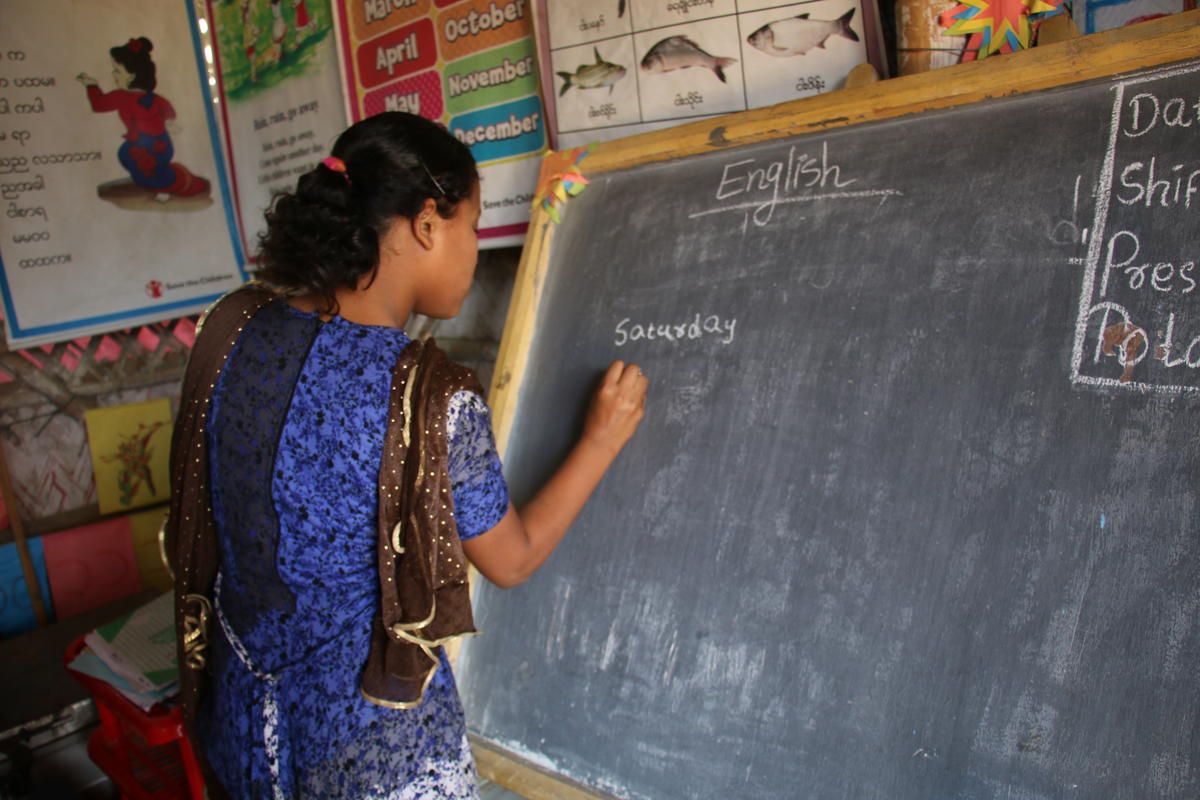
A deep dive into foundational reading disparities in Bangladesh
Over the last decade, many countries have made impressive progress in getting children into school. However, despite going to school, many children are not learning. In contrast to the Millennium Development Goals, the Sustainable Development Goals (SDGs), SDG 4 in particular, focuses not only on school attendance but also on quality of learning. UNICEF’s latest round of the Multi-Indicator Cluster Surveys (MICS) provide us with data on foundational reading skills (as well as numeracy skills), which we have included in the Child Atlas. It measures the percentage of children (aged 7-14) who have minimum proficiency in reading by the end of primary school. These skills encompass word recognition, comprehension of text, and critical thinking abilities, building the stepping stones to a world of knowledge and lifelong learning.
The Child Atlas allows us to dive deeper into this data to understand regional and local patterns of inequalities faced by children. Let’s take Bangladesh as an example, which is one of the countries that has collected this data as part of their most recent MICS. The data shows us that more than 50% of children in the country between ages 7 and 14 lack proficiency in basic reading skills.
For children, reading is not just an educational endeavor. It is a passport to adventure, a window to the unknown, and a treasure trove of endless delights. Labiba (not her real name), a 10-year-old girl from an affluent, urban household in Dhaka, the thriving capital city of Bangladesh, becomes enchanted by the magical world of Harry Potter within the pages of the Harry Potter book series by J.K. Rowling. Inspired by the intelligence and hardworking nature of Hermione Granger from the book, she works hard to excel in school and her proficient reading skills help her to perform well across all subjects. In contrast, Dolon, a 13-year-old boy from a rural, marginalised household in Sylhet, a city with the lowest foundational reading skills for boys, migrates to work as a domestic help in Labiba’s house. He drops out of school to make ends meet for his family. When Labiba goes to school, Dolon sometimes opens a book or two while dusting her bookshelf. Sadly, he fails to comprehend even a single sentence. Evidence of these group-based inequalities in Bangladesh can be found in the Child Atlas, as you can see from the disaggregated data below.

Data above shows the highest inequalities in foundational reading skills are found between children from the richest and poorest households (64% vs 35%). Approximately 1.5 million children from the richest households lack basic reading skills compared to more than double the number of about 3.3 million children from the poorest households, showing that poverty is a major contributor to children lacking these skills. Concerningly, a high divide is evident between 50% of children without disability having the skills compared with 36% of those with disability. Among other factors, a lack of conducive learning environment for disabled children in schools influence these numbers. Gender inequality in favour of girls and an urban-rural divide in favour of children from urban residences are relatively lower but still persisting with 9 and 7-percentage point differences respectively. The disparities in foundational reading skills are not isolated incidents but rather intertwined in most cases. For instance, boys and children from impoverished families often engage in child labor at higher rates than girls and those from wealthier backgrounds, which affects their learning and attendance at school.
The data serves as a powerful reminder to mobilise global action to advance foundational reading skills for all children. The inequalities in learning and foundational reading skills stem from a range of socioeconomic and policy-related factors including poverty, inequality, limited access to nutrition and early childhood development programs, subpar teaching practices, inadequate school management, insufficient investment in public education, poor management of public resources and inefficient implementation. Improving foundational reading skills can enhance overall educational outcomes, and aid in the achievement of SDG 4 by 2030. Quality education is a powerful tool that can help disadvantaged children to escape the viscous cycle of poverty and inequality and provide them with opportunities for a brighter future.
Related stories:
Related stories

Children's progress on the SDGs: Racing against time
Indicators by SDGs (SD)
2024-09-26

Extreme heat and wellbeing: 766 million children exposed to heatwaves in 2023/24
Crisis & Insecurity (CI)
2024-09-04